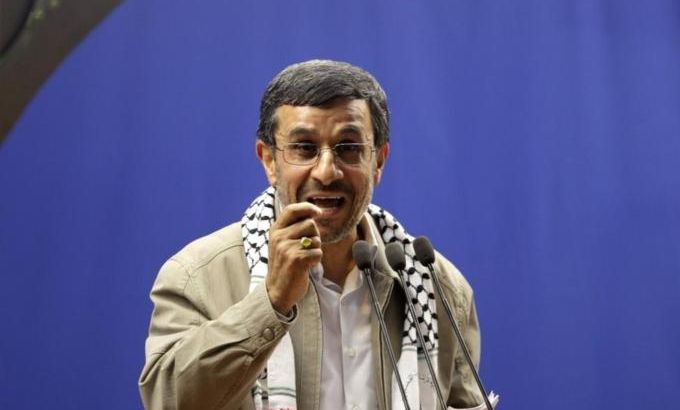
Is a nuclear-free Middle East possible?
As Israel and Iran hold ‘academic’ talks on non-proliferation, we ask if they are serious about building a safer region.
Israel and Iran are participating in informal nuclear non-proliferation talks in Brussels, according to reports in a British newspaper.
Representatives from the US, the EU and about 10 Arab states are also attending what is being billed as an “academic” conference.
|
“Nothing will come out of these sort of talks. The point is from an Iranian perspective, those who are participating in these conferences have no authority. They are university professors, researchers, journalists or these sorts of people. They have no authority.“ – Alireza Nourizadeh, Centre for Arab and Iranian Studies |
The informal meetings are taking place on the sidelines of an international conference on non-proliferation.
But that has not stopped speculation about more substantive contact in the near future.
The delegations are being led by senior officials with government backing. The newspaper says the objective is to lay the groundwork for a full international conference on banning nuclear arms from the Middle East.
In September 2012, Binyamin Netanyahu, Israel’s prime minister, told the UN General Assembly that Iran could be in a position to make a nuclear bomb by the middle of next year. He said a message needed to be sent:
“A red line should be drawn right here … before Iran completes the second stage of nuclear enrichment … necessary to make a bomb.”
|
“While it is highly unlikely today or tomorrow, Israel has said that when they are at peace with their neighbours and they feel secure then they will join the NPT, so they don’t rule that out forever. And what we are trying to establish through these kind of discussions is a way forward to try and create some trust where no trust exists.“ – Mark Fitzpatrick, Institute for Strategic Studies |
Mahmoud Ahmadinejad, Iran’s president, reacted to Netanyahu’s red line, saying:
“Why war? Whoever talks of war is condemned. Suddenly their psychological war was undermined, they are now nervous. Red line, white line, black line and the like is for children. This is the level of this guy’s character. It appeared that his drawing was not good. He got it drawn by a machine. His drawing will get better if he practices more.”
So, how serious are Israel and Iran on ensuring a nuclear-free Middle East?
To answer this question, Inside Story with presenter Teymoor Nabili is joined by guests: Mark Fitzpatrick, the director of the Non-Proliferation and Disarmament Programme at the International Institute for Strategic Studies, and a former official at the US State Department; Mohammad Marandi, associate professor at the University of Tehran; and Alireza Nourizadeh, the director of the Centre for Arab and Iranian Studies.
NUCLEAR TENSION IN THE MIDDLE EAST:
- Brussels meeting was convened by the EU non-proliferation consortium
- Talks may lead to an international conference on a nuclear-free Middle East
- The Israeli prime minister says his country will attack Iran’s nuclear facilities “if necessary”
- Netanyahu insists Israel is “not rushing into war”
- Iran says its nuclear programme is for medical and other peaceful uses
- Israel is the only country in the Middle East with a nuclear arsenal
- Israel says it regards a nuclear Iran as a threat to its existence
- Israeli defence minister says talks are unlikely to resolve the nuclear crisis
- UN warned on Monday that Iran is not co-operating in nuclear probe
- Western governments have imposed financial sanctions on Tehran